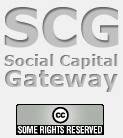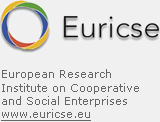Call for Papers: Special Issue of Social Media + Society: Marginality and Social Media
Social media and the internet have opened up new forms of empowerment and oppression that may particularly affect the lives of the marginalized. Marginality, as we are defining it, following Gatzweiler and Baumüller (2013), can be understood as the experience of disadvantaged (typically involuntarily) people or groups who are excluded from the resources and opportunities they need to participate as full and equal members of society. Marginality influences what people can achieve and limits their abilities to take advantage of the resources and opportunities afforded to non-marginalized peers. Further, marginalized individuals and groups are often politically, economically, and/or socially vulnerable, as their susceptibility to harm is greater, often due to to their exclusion from critical resources.
Sometimes social media are a means for marginalized individuals or groups to address insufficient resources and barriers to participation. For example, social media have been implicated in new opportunities for building social capital (Gonzales, 2017), finding like-minded others (Blackwell et al., 2016; Clark-Parsons, 2017; Dhoest & Szulc, 2016; Gray, 2009; Jackson, Bailey, & Foucault-Welles, 2017; Pearce & Vitak, 2016; Pearce, Vitak, & Barta, 2018), providing social support (Gonzales, Kwon, Lynch, & Fritz, 2016; Hanasono & Yang, 2016; Rho, Haimson, Andalibi, Mazmanian, & Hayes, 2017), and engagement in advocacy (Blackwell et al., 2016; Fritz & Gonzales, 2018; Jackson et al., 2017).
At the same time, other research highlights the shortcomings of social media use for the marginalized as well, including harassment and discrimination (Duguay, 2016; Eckert, 2018; Fritz & Gonzales, 2018; Lawson, 2018; Marwick & Caplan, 2018; Nakamura, 2015), doxxing (Wood, Rose, & Thompson, 2018), surveillance (Manning & Stern, 2018; Marwick, Fontaine, & boyd, 2017; Megarry, 2017; Pitcan, Marwick, & boyd, 2018; Vickery, 2014), and the use of social media by people in power to further isolate the marginalized (Flores-Yeffal, Vidales, & Martinez, 2017; Linabary & Corple, 2018; Pearce, 2015; Woods, 2014).
These opportunities and risks affect marginalized people’s use of social media at all stages: access, skills, optimization, privacy, backlash, and development of features, applications, platforms, and tools to deal with unanticipated outcomes, etc. This call seeks manuscripts that consider either or both the strengths and the weaknesses of internet and social media communication for individuals from marginalized groups with the hope of building theory in this area that can ground and foster continued research and understanding.
We seek manuscripts that include a novel analysis of data and meaningfully engage with theory on marginalization. We follow Linabary and Corple's (2018) call to "study up" - start research from the lived experience of such groups for understanding. “Meaningful engagement” includes (but is not limited to): emphasizing the links between marginalization theory and communication research; testing the validity of communication theory not typically applied to marginalized populations; proposing new theoretical constructs that are relevant to marginalization in digital communication; and/or recognizing the need for theoretically interdisciplinary approaches to marginalization in communication. We also welcome manuscripts that engage with methodological approaches to marginality and social media (e.g., Brock, 2016; Linabary and Corple, 2018), as these are important building blocks for successful and ethical research. Finally, we also seek manuscripts that engage stakeholders outside of the academic sphere as collaborators, including policy makers, activists, non-profit representatives, as well as, of course, representatives from marginalized communities being investigated. Projects with a public outreach component that benefits marginalized communities or groups as a function of their investigation (e.g. community workshops, media engagement, etc.) are especially encouraged. All authors must follow basic precepts of ethical research at all research stages, and take into consideration community norms related to privacy. Basic precepts include: respect for privacy, secure storage of sensitive data, voluntary and informed consent when appropriate, avoiding deceptive practices when not essential, beneficence (maximizing the benefits to an individual or to society while minimizing harm to the individual), and risk mitigation. Members of marginalized groups may require additional safeguards to ensure ethical and responsible treatment during research. Authors are encouraged to discuss these issues, and include a section on ethical considerations in their final manuscripts.
We seek submissions relating to social media and marginalization, broadly construed. Possible topics include:
- Social media as a non-traditional way of accessing power
- Barriers to social media use (tied to marginality)
- Effects of social media use (tied to marginality)
- Marginalized identities/groups’ use of social media for social support
- Use of social media for advocacy or awareness-building
- Use of social media to work around traditional gatekeepers
- Privacy calculus or risk-benefits for marginalized online
- Harassment of marginalized people or groups online
- Self-presentation of marginalized online
- Ethics/methods of studying marginalized people online or engaging with technology
Guest editors
Katy Pearce, University of Washington
Brooke Foucault Welles, Northeastern University
Amy Gonzales, University of California, Santa Barbara
Authors should initially submit an extended abstract of 800-1000 words (not including references). The extended abstract should contain the key elements of the manuscript, research questions, methodology and the primary contribution of the manuscript.
The form will also ask for author contact information and abbreviated biography statements for each author describing their main research interests and background.
Tentative timeline:
Extended abstracts 800-1000 words (not including references) due November 28, 2018, 12noon Eastern Time - upload here
Extended abstract authors notified of acceptance ~February 15, 2019
Full manuscript (~8000 words) due May 20, 2019, 12noon Eastern Time
-- Reviews given to authors --
Revised manuscript due November 15, 2019, 12noon Eastern Time
Contact: [email protected]
https://sites.google.com/view/marginalityandsocialmedia/home








